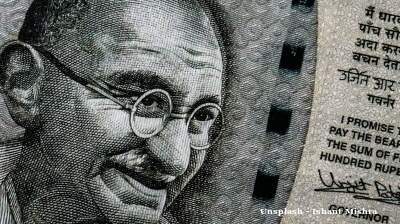At a special session of the Kerala Assembly convened on November 1 to mark Kerala Piravi, Chief Minister Pinarayi Vijayan announced that the southern state had eradicated extreme poverty, making it the first in India to make such a declaration, The Hindu reported.
Vijayan described the moment as the dawn of a new era for Kerala, attributing the achievement to a sustained four-year effort under the Extreme Poverty Alleviation Project (EPEP). The initiative, launched at the first Cabinet meeting of the current Left Democratic Front (LDF) government in 2021, was aimed at identifying and supporting the most vulnerable families across the state.
The Chief Minister detailed that within two months of launching the scheme, data collection began at the grassroots level through a participatory approach involving local representatives, Kudumbashree workers, volunteers, and government officials. From this process, 1,03,099 individuals from 64,006 families were identified as living in extreme poverty based on indicators such as access to food, health, housing, and income.
Under the programme’s first phase, the government prioritised restoring basic rights and access. More than 21,000 people were provided with essential documents such as ration cards and Aadhaar cards, while 20,648 families were assured regular food supplies through Kudumbashree. Health interventions included improved access to medicines, vaccinations, palliative care, and organ transplants, The Hindu added.
Housing and land support were extended through the LIFE Mission to 4,677 families, with an additional 2,713 receiving both land and homes. Employment support reached 35,041 families through the Mahatma Gandhi National Rural Employment Guarantee Scheme (MGNREGS), while livelihood initiatives benefited over 4,000 households. The government also introduced targeted support for children — including scholarships, educational travel benefits, and special care schemes for over 5,500 children — and relocated 428 single-member households to safe shelters.
Vijayan underscored that the achievement builds on Kerala’s long history of social reform and public intervention in health, education, and land redistribution. He cited the progress made since the 1970s, when global and national studies described Kerala as a state struggling with high poverty and birth rates. Continuous policy innovation, mass participation, and welfare-oriented governance, he said, transformed these challenges into opportunities for inclusive development.
He further linked the latest milestone to Kerala’s broader progress on the United Nations Sustainable Development Index, arguing that the eradication of extreme poverty reflected the success of collective social investments and equitable policy design. The government has so far spent over INR10bn ($110mn) on implementing the EPEP, with plans to conduct regular monitoring to ensure that none of the rehabilitated families relapse into poverty.
Vijayan said the initiative reaffirms Kerala’s role as a model for welfare-led development and could serve as a template for other Indian states seeking to eliminate extreme poverty through community-driven planning and state accountability.
News

Russia closing the trap as its forces expand control of Pokrovsk
The stronghold city of Pokrovsk in the heart of the Donbas now risks “becoming a graveyard for Ukraine’s finest,” Euromaidan Press reports as Russian forces expand their control and threaten to encircle hundreds of Ukraine’s best troops.

Rheinmetall invests €400mn in propellant powders joint venture in Romania
Partnership is part of Bucharest’s effort to attract defence investment and expand its domestic industrial capacity.

Hungary, US set to deepen nuclear energy ties during Orbán’s White House visit
Viktor Orban, seeking to secure a temporary waiver from US sanctions on Russian oil, will propose a pragmatic energy deal to Washington, offering deeper cooperation in the LNG and nuclear sectors.

EU’s Kallas warns Bosnia’s EU accession window could close if reforms stall
EU officials have repeatedly said that the bloc’s door remains open to Bosnia, but internal political divisions and delayed reforms have slowed progress toward membership.




